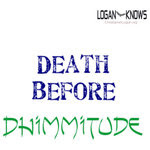
Hundreds of Muslims in Michigan are expected to attend a memorial for Abdul Aziz al-Hakim. Al-Hakim was an Iraqi religious leader who also lead the Islamic Supreme Council of Iraq. The council is backed by Iran and they are said to follow the teachings of the now deceased Supreme Ruler Ayatollah Ruhollah Khomeini.
It is very telling that American Muslims find the time to come out in support of this man, or pro-Hezbollah and anti-Israel protests. But they do not say a word about the Islamic preachers of hate within America.
Michigan Shi'ite Muslims mourn Iraqi leader’s death
BY NIRAJ WARIKOO
Memorials are planned for tonight and Friday in Dearborn as local Shi’ite Muslims mourn the death of Abdul Aziz al-Hakim, an Iraqi religious and political leader who is well-known in metro Detroit’s Shi’ite communities.
Hakim, who once headed Iraq’s biggest political party, visited Michigan in December 2006, speaking at local Lebanese Shi’ite, Iraqi and Chaldean centers after meeting with then President George W. Bush. Hakim, 59, died Wednesday.
“It’s a great loss,” said Imam Husham Al-Husainy, head of the Karbalaa Islamic Education Center in Dearborn. “It’s very sad. People are crying and coming into the center.”
Hundreds are expected to attend the services at the Karbalaa center in Dearborn. And many are watching the funeral services in Iran on satellite TV stations, Al-Husainy said.
Hakim was head of the Supreme Iraqi Islamic Council, formerly known as SCIRI, Supreme Council for Islamic Revolution in Iraq. He hailed from a prominent Shi’ite family of scholars and teachers.
Hakim was a prominent supporter of the Iraq war and met often with U.S. leaders.
Al-Husainy compared the death of Hakim to the death this week of U.S. Sen. Ted Kennedy, in that both came from noted political families.
“As the Kennedy family is to America … the Hakim family is to Iraq,” Al-Husainy said.
Many of Hakim’s family members were killed by the former regime of Saddam Hussein, and he spent his life trying to win freedom for Iraqis, Al-Husainy said.
In metro Detroit, Shi’ites of Iraqi descent admired him, as did Lebanese-American Shi’ites.
In December 2006, Hakim spoke to Shi’ite Muslims at Bint Jebail Cultural Center in Dearborn, a hall named after a town in southern Lebanon largely populated by Shi'ite Muslims.
He told the crowd that Al Qaeda and remnants of the former regime of Saddam Hussein are behind the terrorist violence in Iraq.
“It's not the Shi'ites doing this,” Hakim said through a translator. “It's not the Sunnis doing this. It's the terrorists, the outsiders.”
Hakim also spoke to Chaldeans, Iraqi Catholics, in Southfield and West Bloomfield, and at the Karbalaa Islamic Education Center in Dearborn.
Hakim stressed religious and ethnic unity in his talk, noting that Shi'ites, Sunnis, Arabs, Kurds, Turkomen and Christians have long lived together in Iraq.
The recent violence between the groups is an aberration -- not the historical norm -- he said.
“We have nothing against each other,” Hakim said. “We go back hundreds of years, living together.”
Hakim’s son, Amar al-Hakim, viewed as a popular successor, also visited metro Detroit, speaking at local centers in August 2005. And decades ago, Hakim’s older brother, Mahdi Al-Hakim, also visited metro Detroit, meeting with local imams, Al-Husainy recalled.
Link to Article






No comments:
Post a Comment